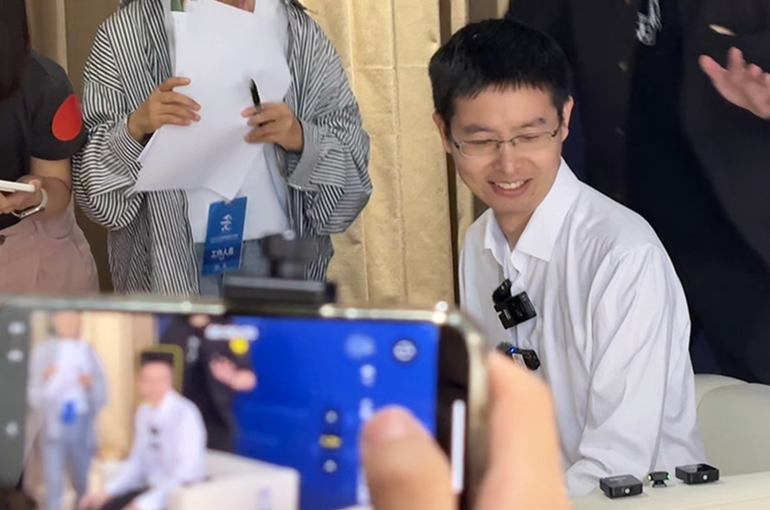 Robotics Industry's 'ChatGPT Moment' Could Arrive in One to Five Years, Unitree Founder Says
Robotics Industry's 'ChatGPT Moment' Could Arrive in One to Five Years, Unitree Founder Says(Yicai) Aug. 11 -- The robotics industry could experience a 'ChatGPT moment' as soon as in one to five years, according to the founder of Chinese startup Unitree Robotics.
The 'ChatGPT moment' of the robotics industry will arrive when humanoid robots can smoothly hand a bottle of water to a person sitting among a large group of people in an unfamiliar environment, following the instructions of its owner, Wang Xingxing told the media, including Yicai, in an interview during the 2025 World Robot Conference.
The five-day WRC kicked off in Beijing on Aug. 8. Themed 'Making Robots Smarter, Making Embodied Agents More Intelligent,' the WRC focuses on global robotics technology frontiers and the industrialization of humanoid robots and embodied intelligence.
Global progress in artificial intelligence technology for robots has been remarkable in the past six months or so, Wang noted. For example, Unitree's robots had relatively stiff running movements in January, but in recent months, they can run more smoothly and even navigate complex terrains, he explained.
The biggest challenge of the humanoid robot industry is that large language models for embodied intelligence are still far from sufficient, Wang pointed out. The architectural framework of embodied intelligence models is neither good enough nor unified, making it difficult to effectively use massive amounts of data, he added.
"In the field of AI, having more resources, more money, or more people doesn't necessarily mean you can develop the world's best technology," Wang said, adding that small- and medium-sized teams still have opportunities to stand out in the development of embodied intelligence models.
The current global robot hardware level can be described as "usable but with still room for improvement," according to Wang. The industry needs more shipments, lower costs, and higher reliability, he noted.
Over the next two to five years, the focus of intelligent robot technology development will include unified end-to-end intelligent robot models, hardware with lower costs, longer lifespans, ultra-large-scale manufacturing, and low-cost, large-scale computing power deployment, Wang predicted.
Unitree's goal is to develop comprehensive, general-purpose humanoid robots capable of performing various tasks across life services, factory production, and stage performances rather than being limited to a single scenario, Wang noted, admitting that progress in this regard is not yet ideal.
Wang also told the media that Unitree has entered the initial public offering preparation process. "I see the listing as a milestone signifying the company's move toward more mature management and operations," he noted.
Editors: Tang Shihua, Futura Costaglione